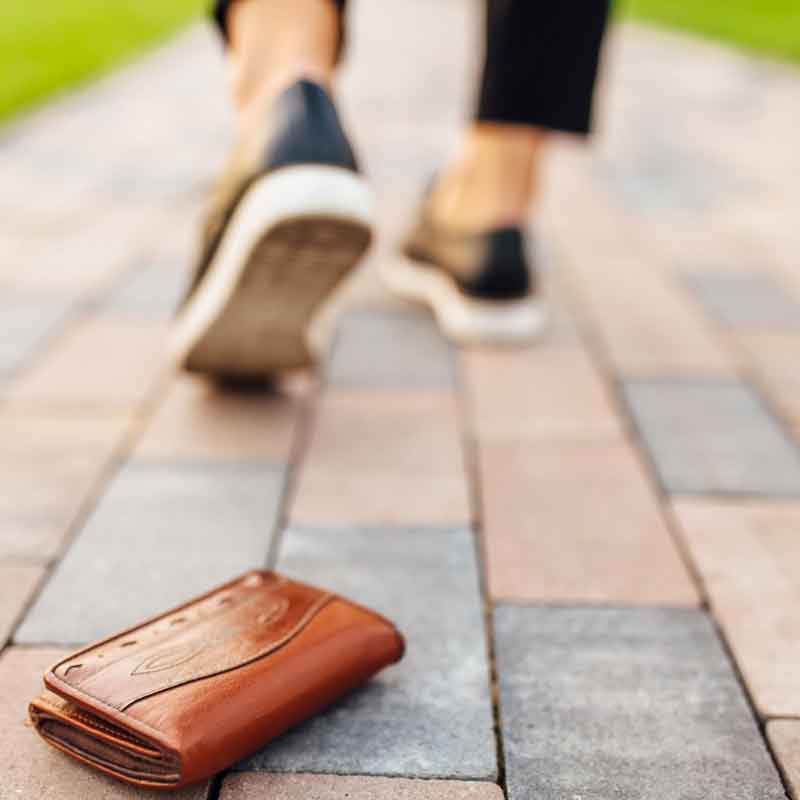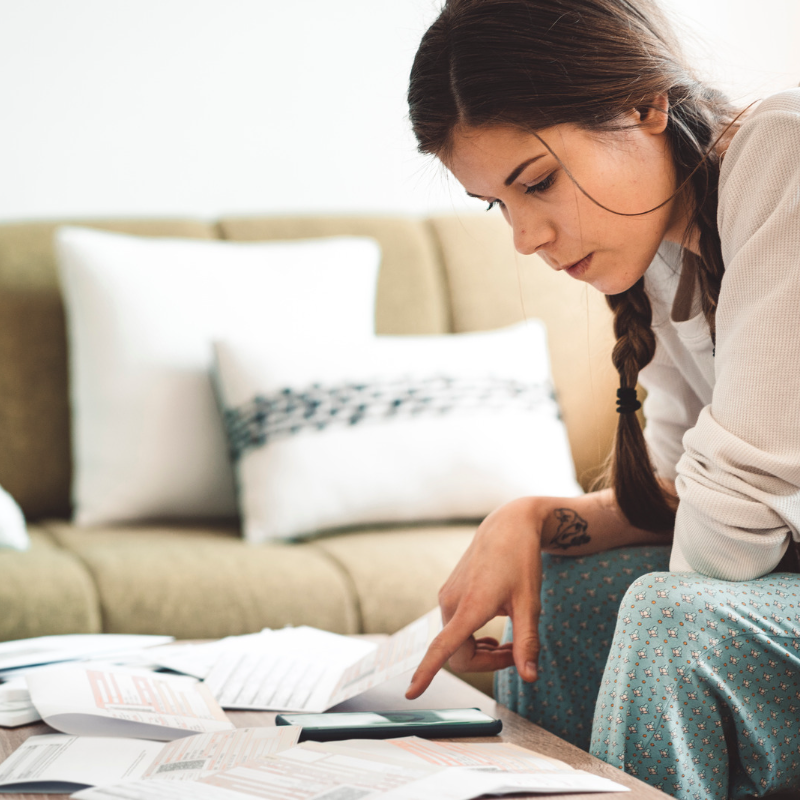My day fell apart in front of the iced coffee machine at my neighborhood convenience store. I had pulled out an extra-large cup, filled it with ice cubes, and then mixed the iced coffee and milk in my traditional equal portions. I could practically taste the cold brew, and the long, refreshing gulp that would ward off the already rising morning temperatures. But first I needed money to pay for my treat. And that’s when I realized: I had no money because I had no wallet.
The joyous anticipation of a cold beverage vanished along with my wallet. Pure panic took its place. Adrenaline coursed through my bloodstream; my heart raced uncomfortably.
My wallet, after all, was an extension of my identity. I had a bit of money in it, but far more importantly, I had credit cards, my ATM card, my driver’s license, and membership cards to various organizations.
My life was in that wallet. And I feared I was about to lose days of my life trying to put all the lost pieces back together again.
Luckily my story had a happy, if somewhat embarrassing, ending. I raced home and after a frantic search, found my wallet in my other pocketbook.
I began to wonder: What I would have done if my wallet had truly gone missing?
Losing a wallet or purse ranks as the top stressor for millennials, according to a survey. It outranks traffic delays and arguments with one’s partner.
It’s also not that unusual. Wallets and purses are the sixth most common lost items.
So what should you do if your wallet is lost or stolen?
First, take a deep breath. Panic, although understandable, accomplishes nothing. Retrace your steps, try to remember the last time you saw it and scour your car and household. (Take an especially close look at other pants pockets or purses.)
Still no wallet? Call the police. This might seem like an overreaction but having your loss on the record is a good precaution in case of potential identity theft. Once that call is made, here’s how to handle losses of specific items:
- Credit cards. Cancel the card by calling the issuer. For a card issued by Hanscom FCU, call 800-656-4328. Don’t worry, you are protected against unauthorized purchases, but you must report the loss of your card to receive that protection.
- Social Security card. This loss could do some serious damage. Social Security numbers can serve as the catalyst to an enterprising thief’s ability to carry out identity theft, a true nightmare. Social Security cards should not be carried in your wallet, but if you didn't know that and it's missing, call the Social Security Administration at 1-800-772-1213 to request a replacement card. You can also order a new card if you have a My Social Security account with the Social Security Administration and meet certain requirements. Read more here.
- Passports. Fortunately, passports are highly secure documents, designed to prevent successful counterfeiting. Procedures to replace passports depends on how soon you are traveling outside the United States or whether you lost your passport while traveling. Here's what you should do if your passport has gone missing.
- Driver’s license. Contact your local Registry of Motor Vehicles as soon as possible to let them know of the loss and to find out how to get a replacement license. Remember: Driving without a license is against the law.
If you've been lucky enough never to have lost a purse or wallet, yay you! But it could happen in the future, so it's smart to make copies of your wallet items and keep them safely stored away. Consider taking photos on a password-protected cell phone camera of all the documents in your wallet or storing the information in a password manager that includes a secure digital vault.
Pare down your wallet to the essentials: One credit card and a driver’s license should get you through most days. Social Security cards and passports are best kept safely tucked away in a locked box until you absolutely need them. (In fact, you'll rarely need your Social Security card...you're better off just memorizing your number!)
Simplify your routine as well. One way to locate items easily is to keep them in the same place at all times. Keep your wallet in the same place, such as a front pants pocket, for example, or one specific bag. (This would have helped me greatly. I now keep my wallet in one small bag. If I need more carrying space, I put this smaller bag inside my purse.)
Bonus: A lighter wallet can take a weight off your shoulders...and your mind.
Others are reading:





-2.png)
-1.png)







Comment